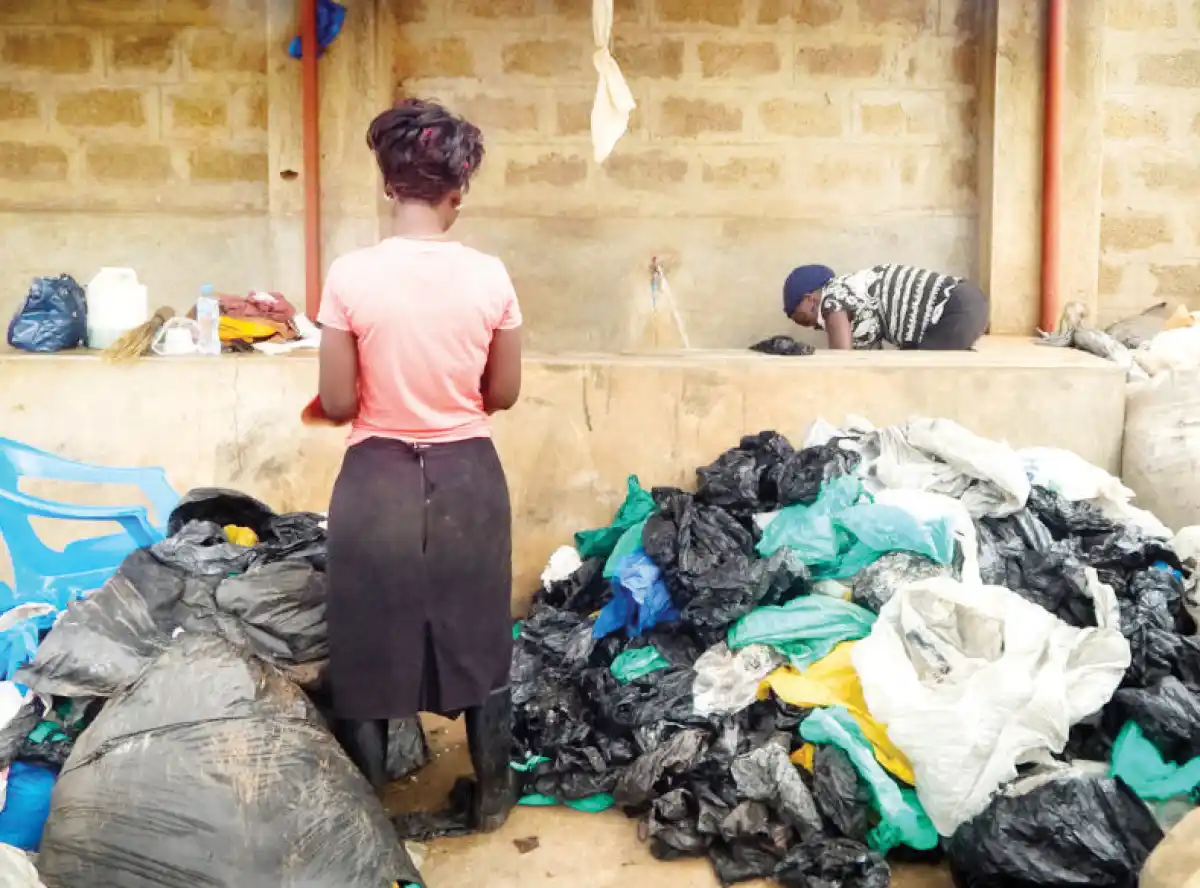
The Ministry of Natural Resources and Climate Change, through the Malawi Environmental Protection Authority (Mepa), is expected to dispatch officers across the country from today to begin enforcing the thin plastic ban.
This development follows a judgement by the High Court on January 31, which declared that the case regarding the single-use plastics ban was an abuse of the court process.
In a briefing to reporters in Lilongwe yesterday, Principal Secretary (PS) for Natural Resources and Climate Change, Yusuf Mkungula, said the resumption of enforcement of the Environmental Management (Plastics) Regulations 2015 means that the manufacturing, distribution, importation, sale and use of plastics under 60 microns is now illegal and punishable by law.
“Anyone engaged in the manufacturing, distribution, importation, sale and use of plastics must comply with the law.

“During inspections, Mepa will be testing the thickness of the plastic bags using appropriate instruments. Should anyone, including manufacturers, producers, traders and dealers, be found with banned plastics, appropriate enforcement action will be taken according to the law,” Mkungula said.
When asked whether the government had provided alternatives to thin plastics, the PS insisted several alternatives are available on the market, including paper bags, woollen bags and thicker plastic bags.
Mepa Director-General Wilfred Kadewa urged Malawians to assist the institution by reporting those who continue to produce plastic items.
According to Kadewa, the law imposes fines of no less than K6 million for those found violating the law on thin plastics.
“The penalties vary depending on the severity of the violation. Companies may also have their machines confiscated.
“There is also a jail term of no less than three months, depending on the severity of the offence,” Kadewa added.
Meanwhile, the Coordination Union for Rehabilitation of the Environment (Cure) has welcomed the enforcement of the ban, saying that the elimination of single-use plastics in Malawi was long overdue.
In a written response Monday, Cure Executive Director Charles Mkoka reiterated that thin plastics have far-reaching negative impacts on human and animal health.
Mkoka said the plastics can last for over 100 years and are non-biodegradable.
“The most common method of disposal is burning, which releases toxic fumes into the air and has the potential to cause human health and environmental problems.
“Plastics also contribute to the death of livestock and other animals when consumed… Generally, plastic pollution is a significant barrier to our country’s efforts to achieve sustainable development,” he added.

Mkoka further said Malawi faces serious waste management challenges, with plastic waste being one of the biggest contributors to pollution.
“Enforcing the ban encourages responsible waste disposal, recycling and the use of environmentally friendly alternatives like paper and reusable bags,” Mkoka said.
He also indicated that the ban encourages alternatives such as reusable and biodegradable packaging, which create opportunities for local businesses to invest in eco-friendly products, generating employment and fostering a green economy.
Details in a policy brief generated by the United Nations Development Programme and two other local organisations estimate that Malawi produces at least 75,000 tonnes of plastic annually, 80 percent of which is single-use and non-recyclable.
The brief further states that Malawians are producing “more waste per capita than their sub-Saharan counterparts, creating a demand which far outstrips the capacity of current waste management systems”.
“Rapid urbanisation, coupled with changing consumer demands, is driving further escalation in plastic production in Malawi,” the document says.
The Malawi Government has been engaged in a lengthy legal battle with thin plastic manufacturing firms over the implementation of the 2015 Environmental Management Regulations.
Between 2015 and May 2021, the government was restrained from enforcing the regulations due to an injunction prohibiting the implementation.
In May 2021, the High Court (Commercial Division) in Lilongwe lifted the injunction prohibiting the enforcement of the thin plastics regulations and dismissed the judicial review challenging their legality by the applicant, Golden Plastics Limited.
Following this, the government resumed inspections and enforcement actions as part of the implementation of the plastics regulations.
However, in July 2021, Golden Plastics obtained a stay order from the Supreme Court of Appeal, preventing the enforcement of the High Court judgement until the appeal of that judgement was heard and concluded at the Supreme Court.






0 Comments